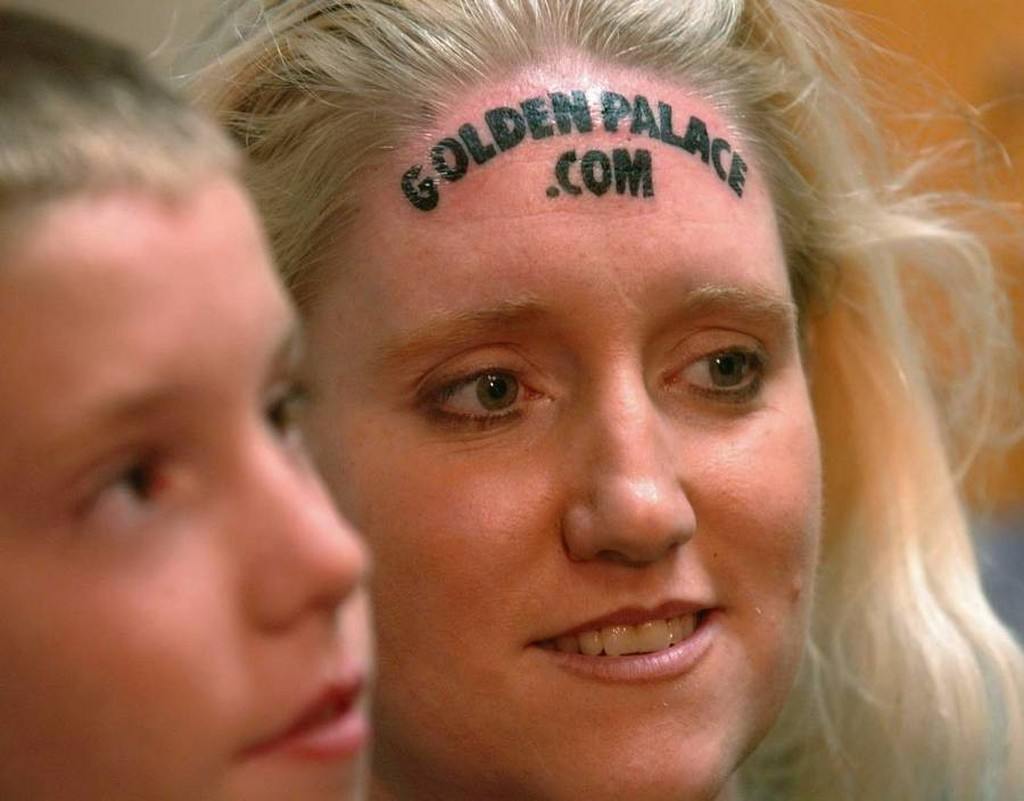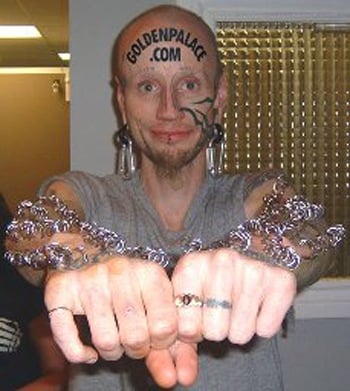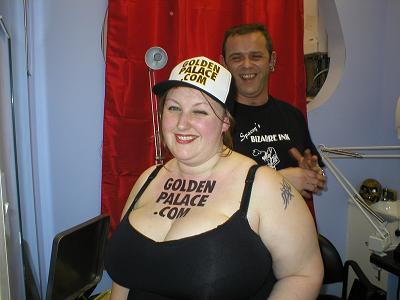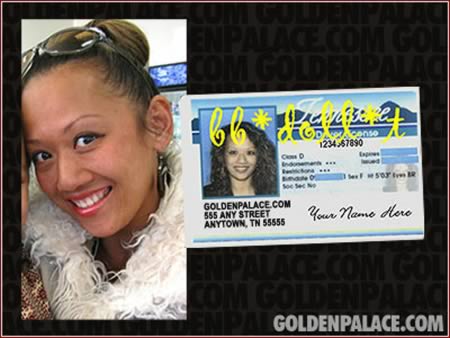Did Karolyne Smith’s Casino Forehead Tattoo Bet Pay Off?
The Unforgettable Forehead Advertisement: How It All Began
In June 2005, Karolyne Smith from Salt Lake City, Utah, captured international attention by auctioning her forehead as advertising space. Faced with financial challenges, she listed an offer on eBay: any company willing to pay $10,000 could have their name and logo permanently tattooed on her forehead. The bold proposition went viral, igniting a media frenzy and spirited debate about the lengths people might go for money.
Online casino GoldenPalace.com seized the opportunity by placing the winning bid using eBay’s “Buy It Now” feature. True to her word, Smith had their logo tattooed on her forehead, instantly becoming an internet sensation and sparking conversations worldwide.

The Headline That Shocked a Generation
Thirteen years after Smith’s stunt, questions linger about the boundaries of personal advertising and the price of publicity. While tattoo regrets are common, Smith’s willingness to permanently brand her face for profit set her apart from other stories in the ink world. The spectacle of her forehead emblazoned with the casino logo prompted public fascination while raising issues about self-worth, desperation, and the power of viral marketing.
Smith’s eBay listing promised her forehead space to the highest bidder for $10,000, and GoldenPalace.com didn’t hesitate to accept the deal. As Smith followed through, she became the subject of online infamy—her story quickly entered the annals of internet lore.
The Rise of “Forehead Goldie”
Smith’s dramatic choice transformed her into a local celebrity, even earning her the nickname “Forehead Goldie.” The tattoo experience was so sensational that tattoo artists reportedly spent over seven hours trying to change her mind. Questions about her mental well-being surfaced, yet Smith remained resolute in her decision.
While some compared her actions to getting a loved one’s name tattooed, Smith at least received $10,000 in exchange—a rare consolation. In contrast, relationship tattoos often leave the wearer with both emotional and visible baggage should things turn sour.
Sparking a Controversial Trend
Smith’s headline-grabbing gamble didn’t just make her infamous—it inspired others to use their bodies as unconventional billboards for online casino advertising.
Canadian Brent “The Human Pincushion” Moffatt, known for his many piercings and tattoos, also agreed to have the GoldenPalace.com logo inked onto his body. In his case, the addition was just another tattoo among many and attracted far less embarrassment or critique.

Moffatt, already established as an extreme body modification enthusiast, welcomed the GoldenPalace branding as part of his journey to break records for body art—making the addition comparatively unremarkable for him. In contrast, Smith’s tattoo felt especially shocking given her more everyday appearance and circumstances.
Another instance saw Scottish woman Angel Brammer auction off her chest as ad space, although she opted for a temporary tattoo. GoldenPalace.com again claimed the winning bid, reportedly spending just £422 for their name to appear on her 42GG-sized chest. The casino’s marketing methods thus shifted from permanence to publicity, cementing their reputation for outrageous advertising tactics.

GoldenPalace.com’s Unorthodox Marketing Playbook
Karolyne Smith’s forehead tattoo was just one chapter in GoldenPalace.com’s history of boundary-pushing publicity stunts. The online casino became almost as renowned for its PR antics as for its gaming offerings.
In late 2004, the casino purchased a cheese sandwich on eBay for $28,000—the sandwich supposedly featured the image of the Virgin Mary. The incident garnered worldwide headlines and cemented the casino’s penchant for headline-grabbing purchases.
The company’s PR push continued in May 2005 when they convinced a woman named Terri Ilagan to legally change her name to GoldenPalace.com, depositing $15,199 into her account to complete the deal. Her story, too, generated massive buzz for the controversial casino brand.

GoldenPalace.com’s spokesperson, Richard Rowe, remarked that these unusual strategies were designed to gain widespread media attention, using humor and shock value to cement the casino’s name in public discourse.
After the Spotlight: What Became of Karolyne Smith?
After her stint in the limelight, Smith used much of her $10,000 windfall to fund her son’s private education. Sadly, the attention and money proved fleeting, and years later, Smith reported living in her father’s basement.
U.S. regulatory changes eventually barred Americans from playing at GoldenPalace.com, limiting future advertising value for such stunts. By 2012, the casino funded the removal of Smith’s tattoo, helping her move on from the symbol of her very public gamble.
Conclusion: Fame, Fortune, and Lasting Lessons
Karolyne Smith’s headline-making decision to auction her forehead as advertising space remains a remarkable example of how far some are willing to go for quick cash and notoriety. The story highlights not just the creativity—and controversy—of online casino marketing, but also the unpredictable outcomes of internet fame. While Smith’s journey had ups and downs, her story endures as a cautionary tale of publicity, personal boundaries, and the cost of instant attention in the digital age.
